CUC eNews: June 21, 2022 – Issue 140
In This Issue:
-
- Letter from Vyda
- Spell for Rest and Renewal by Atena O. Danner
- Meet a Lay Chaplain: Amanda Tarling
- Shining Lights Profile: Vancouver Unitarians’ IBPOC Caucus
- New Board of Trustees Holds Spring Retreat
- Exploring our Growing Edges: A Profile of the CUC’s Social Justice Program
- Strengthening and Supporting Congregations: A Profile of the Congregational Life Team
- Holding Space for Youth and Young Adults: A Profile of Youth and Young Adult Ministry
- Chorus Meditation By Rory Brimacombe
- Survey: Help the CUC Review Decision-making Processes
- Share Your Story in Upcoming Inclusivity Forums
- Discovery Week: An Immersive Exploration of the World’s Major Religions
- “It takes Practice” with Matt Meyer
- Hold the Dates
- The Eighth Principle: What’s Next?
- Job Opportunity in Lachine: Spiritual Exploration Animator
- CUC Office Closure
- What’s Making Us Smile
- Upcoming Events
Letter From Vyda
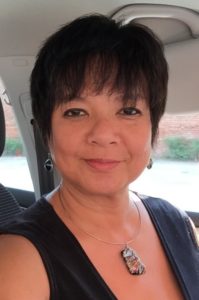 In,’“First Fig,” poet Edna St. Vincent Millay writes “My candle burns at both ends; It will not last the night; But ah, my foes, and oh, my friends— It gives a lovely light!”
In,’“First Fig,” poet Edna St. Vincent Millay writes “My candle burns at both ends; It will not last the night; But ah, my foes, and oh, my friends— It gives a lovely light!”
Since that poem was written in 1920, burning the candle at both ends has become the norm for many of us. We are rewarded for “hustling” and multitasking, and for being “on” all the time. That does not bode well for our health and well-being.
In “Spell for Rest and Renewal,” Atena O. Danner, author of Incantations for Rest (Skinner House Books, 2022), rejects this characteristic of white supremacist culture. She refuses “to light the other end of my candle.” Instead, she draws on “the power of houseplants, candlelight, laughter, and dreaming to reclaim the rest that will heal” her.
Increasingly, I am prioritizing rest. I safeguard my weekends, and take time off to do things I love. And, I encourage CUC staff to do the same. Rest is not only restorative. In our white supremacist culture, it can be a form of resistance. That is the idea behind The Nap Ministry, an organization founded by Tricia Hersey in 2016 to “deprogram the masses from grind culture.” It identifies sleep deprivation as a social and racial justice issue, and creates spaces where people can come together to rest.
Where do you turn when you need to rest? Perhaps, like Danner, you find healing in houseplants or candlelight. I love to travel, something most of us have not been able to do during the pandemic. Earlier this month, I took two weeks off. I hosted a friend of mine who was visiting from the United Kingdom, and flew to British Columbia to visit my daughters. In November, I plan to visit my mother in Malaysia. I admit; I do sometimes attend meetings or check my work email while on vacation. (I have not yet outhorsed my out-of-office replies.) But, I am getting better at holding space for myself. I have to. We all do.
If we are to “accountably dismantle racism and systemic barriers to full inclusion in ourselves and our institutions” – as our 8th Principle calls us to do – we need to reconsider our relationship to work and rest. We need to let go of the unrealistic notion of perfectionism – another characteristic of white supremacist culture – and adjust our expectations of ourselves and others. This doesn’t mean we don’t take our work seriously, and it doesn’t mean we won’t work hard to make the world a better place. We will, however, be kind to ourselves and respect our limits.
It can be as simple as pausing in the middle of a busy day to take a few deep breaths, which we invited you to do in the National Service on May 15, 2022. Some Unitarian Universalists honour the sabbath one day a week. Others have technology-free days. What do you do to ensure your candle isn’t burning at both ends?
At the Canadian Unitarian Council, we are embracing summer as a time to rest and re-set. There will be no eNews in July. Our office will be closed from August 5 to 19, and most of our programs will be on hiatus until September.
Whatever the summer holds for you, I wish you well.
P.S. Although we’re slowing down this summer, we are launching a weekly reflection series. We want to keep the national conversation going about how we live out the 8th Principle, personally and collectively. Every Monday in July and August, we will send eNews subscribers a reflection, thought or question related to this. Think about it while you go out with the dog, share your thoughts with a friend over coffee, journal about it, or write about it on social media. We invite you to reflect on the question in whatever way you choose.
Be well friends,
Vyda Ng
Executive Director
vyda.ng@cuc.ca
Spell for Rest and Renewal by Atena O. Danner
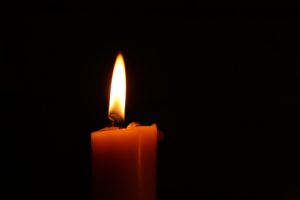
I,draw on the power of houseplants, candlelight, laughter, and dreaming to reclaim the rest that will heal me. In defiance of white supremacy, ableism, and patriarchy, I refuse to light the other end of my candle.
I will boldly protect my softness, defend my sleep, and liberate all of my unassigned minutes, hours, and days. I am one soft animal among many: a cell in the breathing world’s body. Let us be cared for as such. May it be so.
Meet a Lay Chaplain: Amanda Tarling
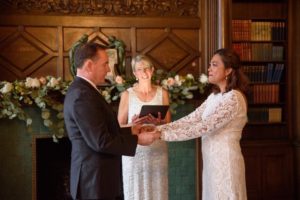
(In each edition of the eNews, we will introduce you to a committed UU, who is either a religious professional or a dedicated volunteer. In this way, we hope to strengthen the fabric of our connections to each other.)
Created in 1971, the Canadian Unitarian Council’s unique lay chaplaincy program trains and supports carefully chosen members of Unitarian Universalist congregations to create and perform rites of passage. Lay chaplains are pleased to provide these services, including weddings, child dedications, and memorial services, to people who want a religious or spiritual ceremony. This includes members of the general public and UUs in congregations without a minister.
Amanda Tarling, a member of Capital Unitarian Universalist Congregation (Victoria, British Columbia), has served as a lay chaplain on and off for the past 20 years. She appreciates the opportunity to play a part in meaningful chapters in people’s lives. Regardless of the occasion.
“I try and really think about how we can be of service to people. In all the different transitions in people’s lives,” she says. “Whether it’s a move, a new bike, a new car. Whatever it is, there’s a place to help ease a transition with the ceremony.”
Amanda is planning to officiate at a large number of weddings this summer. She’s also available for more spontaneous events. For example, she’s been invited to be on standby in the VIP tent at a music festival in Victoria in September. Ready to serve as an officiant for any ceremony concertgoers might wish her to perform.
“It’s still being planned. It’s still a little bit up in the air. But, it’s so interesting to have been invited to participate in something that’s completely outside our experience,” she says.
Despite her many years of experience as a lay chaplain, Amanda still finds it challenging when something goes amiss during a ceremony and it falls to her to make things right. She recounts a wedding she was officiating at where the bride had just arrived in Canada from Mexico. She’d never visited the country before. Amanda had her hand outstretched to receive the rings. But the bride’s ring fell to the ground before she could take it. It left Amanda feeling like she had to say something.
“What popped into my mind was perfect,” she says. “I think what I ended up saying was: ‘clearly, the earth of Canada had to bless your ring before you wore it.’ I don’t know where that came from but it was the perfect thing. So that’s, for me, the challenge. If something is going off the rails, how do I bring it back to the sacred space of ceremony?”
Finding enough people willing to serve as lay chaplains is also a challenge the CUC’s program faces. But Amanda is happy to sing its praises to anyone considering the role.
“I wish every Unitarian had an opportunity to be a lay chaplain,” she says. “And I can’t recommend it highly enough.”
Interested in the CUC’s Lay Chaplain program? Check out the information on the website or contact lcc@cuc.ca
Shining Lights Profile: Vancouver Unitarians’ IBPOC Caucus
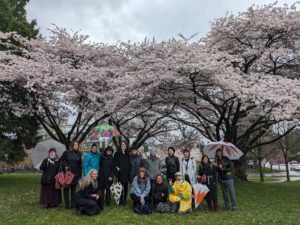
The Canadian Unitarian Council’s Shining Lights Award celebrates innovative projects developed by Unitarian Universalist congregations and groups. The Shining Lights team has worked over the past year to invite nominees, review applications, and make a decision regarding this year’s award recipient. The award was granted to the You’ve Got Mail group from First Unitarian Congregation of Toronto. We will profile one of the four nominated projects in the eNews between now and October. This month we are featuring the Vancouver Unitarians’ IBPOC (Indigenous, Black, and People of Colour) Caucus.
The Caucus began in April 2021 as a small group of people connected to Vancouver Unitarians who identify as non-white. Meena Wong, an original member of the group, found it provided a welcome sense of community she had lacked within the larger congregation.
“I have always felt not able to really become a part of the community, because the community, they’re white and people are very friendly but only to a certain point,” she says. “It’s like there’s an invisible wall or barrier that I don’t know how to get through.”
The group’s members started meeting regularly to discuss various aspects of their lives as members of the IBPOC community, going on to host film screenings to celebrate Asian Heritage Month and other events. In January 2022, the group expanded to create a new IPA (IBPOC Plus Allies) Team, a group that would co-organize multicultural events, while leaving in place the IBPOC Caucus to focus on its original purpose as an affinity group.
“We don’t want to be always in a little closed group,” says Cynthia Lam, another founding member.
“We want to have allies to help us to take down the barrier, to make people comfortable working together, and we firmly believe when we are working together, we understand each other more too and whatever fear or feelings of threats or discomfort will gradually come down.”
Debra Sutherland, an ally of the group, acknowledges that the work the IPA Team has undertaken is considerable, and that there’s still more to be done, particularly around issues such as intersectionality. But the fact that the congregation as a whole has supported the Team has made this easier.
“That’s where the institutional support can take over,” she says. So that at some point it doesn’t have to be done by people that need to sit back and put their feet up.”
The group’s members agree that there’s still much work to be done when it comes to issues of racism, but they’re still pleased with what they’ve accomplished.
“We’re very optimistic and we’re very, very active, just amazed at what our IBPOC Caucus and our allies can achieve as a group,” says Wong. “And I think, for any major Unitarian centres that want to reach out to a more multicultural base, our program is one that could be replicated.”
To learn more about Vancouver Unitarians IBPOC Caucus, watch this video.
New Board of Trustees Holds Spring Retreat
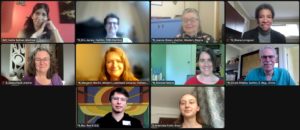 A new Board of Trustees was installed at the Annual General Meeting of the Canadian Unitarian Council (CUC) on May 15, 2022. Later that month, the Board gathered online for its spring 2022 retreat. This was the first official Board meeting for new trustees Rev. Debra Faulk (British Columbia Region) and Yvette Salinas (Eastern Region). It was also the first meeting attended by the new Youth Observer to the Board, Artemisia Frolic-Smart.
A new Board of Trustees was installed at the Annual General Meeting of the Canadian Unitarian Council (CUC) on May 15, 2022. Later that month, the Board gathered online for its spring 2022 retreat. This was the first official Board meeting for new trustees Rev. Debra Faulk (British Columbia Region) and Yvette Salinas (Eastern Region). It was also the first meeting attended by the new Youth Observer to the Board, Artemisia Frolic-Smart.
The Board is responsible for governing the organization in the best interests of the ownership, the member congregations of the CUC. It has adopted the Carver model of policy governance and governs through the setting and monitoring of appropriate Board policies.
The Board met three times over the course of the two-day retreat. Each session opened with an opportunity for worship and reflection, which grounded the work of the Board in our shared Unitarian Universalist (UU) faith.
CUC staff joined the retreat on the first day (May 24). They delivered reports on recent work to support congregational life; youth and young adult ministry; and social justice. They also provided updates on the administration of the organization and its communications strategy. Emphasis was placed on how the CUC’s operations align with the strategic priorities that were set by the Board (and approved at the 2022 AGM).
On May 25, Board members discussed how they would work together to ensure the strategic priorities are met. They addressed concepts like “teamwork” and “commitment” within the context of UUism. They looked at covenants, and took the time to get to know one another. They then began to explore some key issues: the implementation of the 8th Principle; the vision for Unitarian Universalism in Canada; and the state of UU ministry in Canada.
Contrary to what was reported in ScandaloUUs on April 1, 2022, the fall Board retreat will not be held in space. Instead, CUC Board and staff will meet in Mississauga, Ontario from September 30 to October 2, 2022 to explore these issues (and others) more deeply.
Exploring our Growing Edges: A Profile of the CUC’s Social Justice Program

Earlier this month, we sat down with Amber Dawn Bellemare, the CUC’s Truth, Healing and Reconciliation Coordinator, to reflect on the Canadian Unitarian Council’s (CUC’s) work on social justice.
Bellemare and Erin Horvath, the CUC’s Social Justice Lead, have created forums for Unitarian Universalists (UUs) across Canada to address critical issues like racism, classism, colonization, ableism, and non-traditional relationships/families from an intersectional perspective. They have invited people to register for online events like the Inclusivity Forums or the Elder’s Circles with Stephen Paquette and Sharon Jinkerson-Brass on the first Wednesday of each month. And, they have built online resources to help congregations take action (e.g. Uncolonizing Climate Justice).
The work is challenging, but Bellemare is “a hopeful realist.” She “wakes up every morning knowing she has the capacity to change and grow.” It motivates her to be in service to a community also willing to do the same.
Over the past year, the need for change was reinforced. There was a sense of urgency, says Bellemare. The CUC had to rally to create spaces where people could discuss the adoption of the 8th Principle. These events were well attended, often by UUs who had not attended any of the organization’s social justice events in the past. The discussions were sometimes difficult. Yet, people leaned into discomfort and, ultimately, voted 95% in favour of adopting the 8th Principle, which calls on us to accountably dismantle racism and systemic barriers to full inclusion in ourselves and our institutions.
There is still much work ahead. Since the vote on the 8th Principle, Bellemare notes that fewer people are attending the Elder’s Circles, Inclusivity Forums, and other social justice events. The tension around the addition of an 8th Principle gifted UUism with a sense of urgency, people engaged in learning with a degree of earnestness we had not seen prior to the proposed 8th principle, nor since the vote.
Bellemare and Horvath challenge UU’s to commit to actualizing the 8th principle in our UU cultures, not just in our UU statement of principles.
In the coming months, Bellemare and Horvath will invite UUs to keep exploring our “growing edges.” They will ask us to hold up a mirror for self-reflection at social justice events on the first Wednesday of each month (starting in September). Mark your calendar!
Uncolonizing climate justice will be a primary focus in the 2022-2023 congregational year. If you’d like to know more about what can be done in this area, join Horvath and Bellemare at the Leader’s Roundtable on Saturday, June 25, 2022.
You can reach out to the social justice team throughout the year to discuss challenges and opportunities. You can contact them via email: socialjustice@cuc.ca.
Strengthening and Supporting Congregations: A Profile of the Congregational Life Team
 The Canadian Unitarian Council’s (CUC’s) Congregational Life Team has a varied mandate, including but not limited to supporting religious professionals and lay leaders; helping with staff transitions, conflict management, and program development; developing and collecting resources to aid in congregational vitality; and creating and facilitating learning opportunities for congregations and leaders. Since 2014, the Team has been composed of Joan Carolyn, serving the British Columbia and Western regions; and Rev. Linda Thomson, serving the Central and Eastern regions.
The Canadian Unitarian Council’s (CUC’s) Congregational Life Team has a varied mandate, including but not limited to supporting religious professionals and lay leaders; helping with staff transitions, conflict management, and program development; developing and collecting resources to aid in congregational vitality; and creating and facilitating learning opportunities for congregations and leaders. Since 2014, the Team has been composed of Joan Carolyn, serving the British Columbia and Western regions; and Rev. Linda Thomson, serving the Central and Eastern regions.
The strength and commitment of the congregations they serve has been a driving force for both Thomson and Carolyn in their work.
“I’m well aware that for every hour I spend or every hour a minister spends in a congregation, multiply that by factors of 10 at least. That’s lay leaders doing the work of trying to build a stronger religious community,” says Thomson. “And I find that really humbling and inspiring.”
The past congregational year was a memorable one for the CUC, as it dealt with the ongoing impact of the pandemic; the debate over (and ultimate adoption of) the Eighth Principle; and other issues. Carolyn found that she particularly appreciated working with Thomson and the rest of the CUC staff team during this time.
“I just think that there has been great creativity, great passion and commitment, and serious efforts to listen,” she says.
An event that stands out for Thomson was the workshop on mental health the CUC offered in the fall of last year, which she hopes will be the starting point for more discussion on the issue.
“I’m really proud that we did that because I don’t think it gets talked about enough,” she says, “and what I know is that there is no community in the world that’s not affected by by mental health issues. There are people in all communities who have mental health challenges, and we largely ignore it.”
Looking ahead to the 2022-23 congregational year, the Congregational Life Team will offer a second module of the Renaissance program for religious educators and another iteration of the Serving with Spirit leadership program. The team will also support the large number of congregations that are currently (or will soon be) seeking new ministers, a challenge compounded by the fact that there are fewer such professionals available than the number of congregations who want one.
Planning for the coming year is important. But Thomson says a big part of the team’s job is also being ready to respond to issues as they arise.
“A lot of our work is keeping our ear to the ground,” says Thomson. “We can plan out and say we’re gonna have a rotation of workshops, and we can do some of that, but we also have to be nimble.”
You can contact Joan Carolyn and Linda Thomson via email: congregationallife@cuc.ca.
Holding Space for Youth and Young Adults: A Profile of Youth and Young Adult Ministry
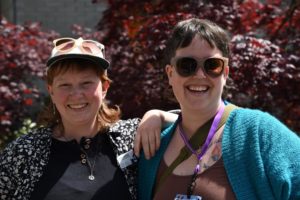
Photo of Casey Stainsby and Rev. Danielle Webber by Arielle Canning.
Youth (14 to 19) and young adults (18 to 35) are an important part of Unitarian Universalist communities. The Canadian Unitarian Council (CUC) is no exception. Youth and young adults are at the forefront of much of our work to be a more radically inclusive faith.
For example, youth are leading and taking part in programs like Rising Together (a group for youth and emerging adults of colour) and the MycelliUUm Youth Network (a national body that promotes youth engagement and participation in Canadian Unitarian Universalism). Young adults make up the Decision-making Exploration Team, which is reviewing Robert’s Rules of Order–the CUC’s current decision-making model–and alternatives.
Rev. Danielle Webber and Casey Stainsby oversee the CUC’s Youth and Young Adult Ministry. They offer a wide range of in-person and online programs and events with three broad goals. To help youth and young adults connect to Unitarian Universalist faith and theology. To help them understand their own identities, and to build healthy communities together.
It is rewarding work, says Rev. Danielle Webber, who joined the CUC in August 2021. A lifelong Unitarian Universalist (UU), Rev. Webber believes she “missed out” on a lot when she was growing up. “There wasn’t a big youth group in my congregation,” she says. In doing this work, “I hope I can fill a gap that I experienced.”
She works closely with Stainsby to fill that gap. Together, they create opportunities for youth and young adults to gather. Then they hold space.
That space has been virtual for the past three years due to the pandemic. But in May 2022, the CUC held CanUUdle and Chorus, its two national youth and young adult conferences (or “cons”), in person. “It was incredible,” says Rev. Webber. “Being in person again, seeing each other in person, often for the first time, was really significant for our communities.”
Considerable effort was required to do it safely, she adds. “We had to navigate federal and provincial requirements plus our own [CUC] rules.” But it was worth it.
Rev. Webber is looking forward to more opportunities to gather in person in the coming months. But, she is quick to add, the CUC will continue to offer programs online. Ongoing events like Célébrons ensemble and Gathered Here will return in September. Groups like the MycelliUUm Network will meet online. And, for the first time, the CUC will host virtual conferences for youth and young adults during its Fall Gathering (November 18 to 20, 2022).
Rev. Webber and Stainsby will also facilitate a discussion on revitalizing youth and young adult ministry at the Leader’s Roundtable on Saturday, October 29, 2022. Congregations are invited to send one or more representatives to this discussion. But you do not have to wait until the fall to consult with the CUC. Rev. Webber invites congregations to reach out to her at danielle.webber@cuc.ca for support throughout the year. She also is available to discuss the Our Whole Lives (OWL) Sexuality Education program.
Chorus Meditation
by Rory Brimacombe
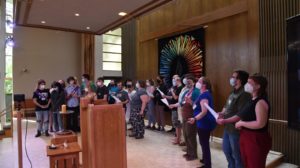
Photo of the bridging ceremony by Arielle Canning.
I wrote this reflection with input from other Chorus participants involved in planning our final worship/closing circle, and then delivered it in the context of that sacred space. The intention of these words is to honour the unique and special experience that we were able to have in gathering in person again, even as we parted ways at the end of Chorus.
Friends – I am so happy we are here. In this circle, in this sacred space; on these Tsleil-Waututh lands whose histories stretch back to time immemorial, Can you feel it? The footsteps of all those who’ve walked and run and rolled this ground before you?
This weekend we have been blessed to gather, not only in spirit but also in flesh. We have held each other again, skin-to skin; have laughed infectiously; and heard the harmony of so many voices once again singing together in Chorus.
As we reflect on the power of our being-together, I invite you to close your eyes, if you wish. Seeing the darkness and lingering ghosted light still playing in your eyelids, your mind may wander to the vast expanse of the universe. Many of us believe that the universe began with a Big Bang. In an instant, nothing becoming something. An impossibly infinite, unlikely, and miraculous expansion. Others conceive of a world without end – a world that never ‘began’ because it was always already.
As we gather this weekend, we may feel the possibility of two things being true at once,. This conference, this retreat, has been a kind of “Big Bang.” Where on Thursday there was only a quiet and empty church, there is now an intricate, loving community. An impossibly infinite, unlikely, and miraculous expansion. And yet, we also know that this community has been here all along, even when we could only see each others’ faces through a screen; even when we could not hear each other’s voices echo in this sanctuary. This community has been present in the virtual conferences and services we have attended; in the connections we have maintained with others across space and time and zoom calls; it has been in our personal spiritual practices – our quiet prayers and joyful songs and time spent with nature. This community has always already been here, living in your heart.
And so let us remember this as we part ways again after this weekend. Our community has this magical ability to dissolve and re-form, dissolve and re-form. To wash away like a pebble on a shore, and then to come back in again. As we sit in the quiet space after this gathering, may we feel ourselves resting not in emptiness or loneliness, but in potential. May we always have the fine-tuned senses to reach out and feel the threads binding us to once another. To have faith that once again, the impossible, infinite, and miraculous will happen. And we will be always already here.
Survey: Help the CUC Review Decision-making Processes
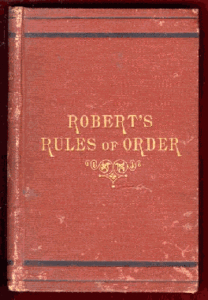 The Canadian Unitarian Council’s (CUC’s) Board of Trustees recently established a Decision-making Exploration Team to look at the process we use to make decisions in CUC general meetings and special meetings. The team is tasked with recommending whether this process should change and, if so, how it should change.
The Canadian Unitarian Council’s (CUC’s) Board of Trustees recently established a Decision-making Exploration Team to look at the process we use to make decisions in CUC general meetings and special meetings. The team is tasked with recommending whether this process should change and, if so, how it should change.
Unitarian Universalists across Canada have considerable experience, knowledge, and expertise in this area. We want to hear your perspective on the principles that are most important in how the CUC makes collective decisions, and we want to learn from any experience you have with different decision-making systems.
We invite you to respond to this survey before June 30, 2022.
We expect it will take five to 30 minutes to complete the survey, depending on how much time you spend answering the open-ended questions.
All questions are optional. We strongly encourage you to complete the demographic questions at the end of the survey to help us understand who is responding to these questions.
The survey is the start of our consultation, not the end. As noted by Robbie Brydon, the Chair of the Decision-making Exploration Team, “our goals here are to: a) tap the (qualitative) knowledge of our membership to expand the set of options under consideration and b) take the pulse of where we’re collectively starting from in terms of how we relate to the existing system and to some of the alternatives we’re aware of already.”
Thank you in advance for your time and attention. It is greatly appreciated.
Share Your Story in Upcoming Inclusivity Forums
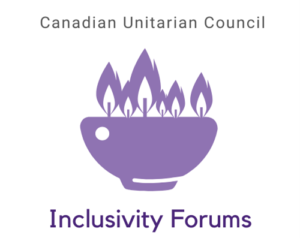
The Social Justice Team is making documentary-style videos for the next two Inclusivity Forums. One forum will focus on welcoming folks of all gender identities and expressions, while the other will look at welcoming people of all ages.
If you are a Unitarian Universalist who has experienced exclusion due to your age, gender identity or gender expression, and you would like to share your experience through video, audio, or text, please contact Amber Bellemare and Erin Horvath via email: socialjustice@cuc.ca. They plan to complete all interviews by Friday, July 8.
.
Discovery Week: An Immersive Exploration of the World’s Major Religions
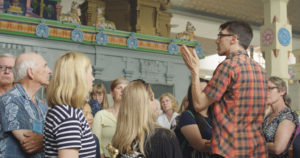 An Invitation from Encounter World Religions
An Invitation from Encounter World Religions
July 17-23, 2022
Various locations in Toronto, Ontario (in-person only)
We danced with the Hare Krishnas, shared wine with the witches, listened to a Rabbi in the oldest synagogue in Toronto and a Grandmother in a native lodge, experienced Zen, met the Rastafari under a teapot, read the Byzantine icons, were reminded of the smell of peace in the candles of the Catholic cathedral, ate with the Sikhs, said mid-day prayers with the Muslims and much more. It was a spiritual journey I will not soon divert from.
~ Discovery Week Participant
For more than 20 years Encounter World Religions has been taking people on a unique and immersive exploration of the world’s major religions without ever leaving Toronto. A favourite with many Unitarian Universalists (UUs), the program has received high praise. Shawn Newton, Minister at First Unitarian Congregation of Toronto shared his praise of the program: “Brilliant lectures, visits to a variety of religious communities, and opportunities to witness and/or take part in the worship practices of each religion. While I have an undergraduate degree from Harvard in comparative religion, I’m feeling I learned so much more this week than I did over all of those years of studying!”
In celebration of the return to in-person programming this year, Encounter World Religions is offering UUs a special $100 coupon for Discovery Week which runs July 17-23 in Toronto. The registration fee covers the program and all educational resources, all site visits and related transportation, and all meals during the week and information about possible accommodations will be supplied following registration.
To learn more, register and use the discount code DWEEK2022 please visit https://www.worldreligions.ca/discovery-week
“It Takes Practice” with Matt Meyer
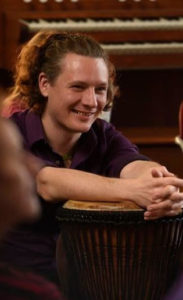 August 14, 2022, 11 am PT | 12 pm MT | 1 pm CT | 2 pm ET | 3 pm AT
August 14, 2022, 11 am PT | 12 pm MT | 1 pm CT | 2 pm ET | 3 pm AT
Unitarian Church of Vancouver (in-person) or via livestream
The BC Ministers’ cluster, lead by Rev. Samaya Oakley, Rev. Lara Cowtan, and Rev. Ron Phares, invite you to share in a summer music service.
Join congregations throughout British Columbia for a service with Matt Meyer on Sunday, August 14. Our favorite songs, whoever the artist or whatever the style, were created in a strange alchemy of study and inspiration, of strict practice and of letting go.
Spiritual practice is a similar combination of dedication, muscle memory, and perhaps a little divine inspiration. Join us for a musical exploration of learning to risk, building the muscle memory of courage, and the spiritual practice of relationship when things around us are changing fast.
Matt is a musician and worship leader who has led hundreds of services for Unitarian Universalist (UU) congregations across the country. He has a degree in hand drumming and serves as Director of Community Life for Sanctuary Boston.
You can attend the service in-person at the Unitarian Church of Vancouver or via livestream.
Hold the Dates
Mark your calendars. Here are some dates coming up to note.
September 25th: The Canadian Unitarian Council (CUC) will hold a national service in honour of truth, healing, and reconciliation on Sunday, September 25. The recorded service will be made available to congregations ahead of time, with a virtual service to be held on Sunday, September 25th at 1pm ET.
November 18th – 20th: The virtual fall gathering will be held on this weekend on the theme of “Leaning Into Covenant.” Congregations are encouraged to send at least two of its members to participate. There will be regional breakout sessions on Friday evening, workshops on Saturday, and a national service on Sunday morning, November 20th. More details will follow in the coming months.
February 5th, 2023: The virtual national Sharing Our Faith service (our third!) will take place on the first Sunday in February. More details to come.
May 19th – 22nd, 2023: This is a big weekend! Our first in-person and multiplatform national event since 2019 takes place! Details on theme and location are being confirmed. CanUUdle and Chorus also happens during this time.
The Eighth Principle: What’s Next?
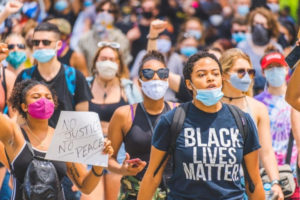 The implementation of the 8th Principle is a strategic priority of the Canadian Unitarian Council (CUC). Throughout the coming year, we will be exploring the ways in which we are working to dismantle racism in ourselves and in our institutions.
The implementation of the 8th Principle is a strategic priority of the Canadian Unitarian Council (CUC). Throughout the coming year, we will be exploring the ways in which we are working to dismantle racism in ourselves and in our institutions.
We know that Unitarian Universalist congregations and organizations throughout the country are doing the same. The CUC would love to hear about the programs and events you have planned. We are developing a resource that will allow congregations and UU organizations to document and share updates on all of the good work being done. In the meantime, we invite you to share any updates with your organization’s Congregational Life Lead.
We are also creating a new online hub for resources related to the 8th Principle. We invite ministers and other professional or lay leaders to reach out to Shelley Motz, the CUC’s Communications Manager, if you would like to share any sermons, reflections, or other worship pieces on the 8th Principle on the CUC website. Shelley can be contacted via email: Communications@cuc.ca
Job Opportunity in Lachine: Spiritual Exploration Animator

The Lakeshore Unitarian Universalist Congregation in Lachine, Quebec is seeking a Spiritual Exploration Animator. LUUC strives to correct injustice, assist the disadvantaged, and champion the inherent worth and dignity of all people.
This is a part-time salaried position: 2 hours on every second Sunday morning, 1-2 hours per Sunday session for planning, preparation, communication and additional hours for intergenerational services and outings. Position salaried at $20/hr.
For more information, please refer to the job description. Interested candidates should reply with an expression of interest and CV to caitlinberry.88@gmail.com by July 31, 2022.
CUC Office Closure
Please note: the Canadian Unitarian Council’s office will be closed between Friday, August 5th and Friday, August 19th for summer break. We will reopen the office on Monday, August 22nd.
What’s Making Us Smile
Iceland has trotted out a service that lets horses reply to work emails when you’re on holiday. Using a large keyboard mat, the gaited horses are able to walk, trot, canter, tölt, and pace their way across the keys. Unsurprisingly, the result is nonsense replies to corporate contacts, with examples listed as “þþnjifai=’.,,lmbmbnbbhgycdrgzw/’pfæ ndaiFVxhðut7r7r7djsmfdsm” and “þnjifai\’/.p,oii9unnbhvggyvgjhbjm,kfæ,.iklp–jpomohu o/’k;,i,mumnf.”
Upcoming Events (online via Zoom)
Share what’s going on in your congregation. Contact communications@cuc.ca
Leader’s Roundtable – Uncolonizing Climate Justice
June 25, 9:00 a.m. PT | 10:00 a.m. MT | 11 :00 a.m. CT | 12:00 p.m. ET | 1:00 p.m. AT
Connect and Deepen – Virtual Gathering on the Interdependent Web (Solstice)
June 26, 1 pm PT | 2 pm MT | 3 pm CT| 4 pm ET | 5 pm AT
Rising Together: UU Youth and Emerging Adults of Colour
July 2, 1 pm PT | 2 pm MT | 3 pm CT | 4 pm ET | 5 pm AT
Leader’s Roundtable – Communications for Congregations
August 27, 9:00 a.m. PT | 10:00 a.m. MT | 11 :00 a.m. CT | 12:00 p.m. ET | 1:00 p.m. AT

